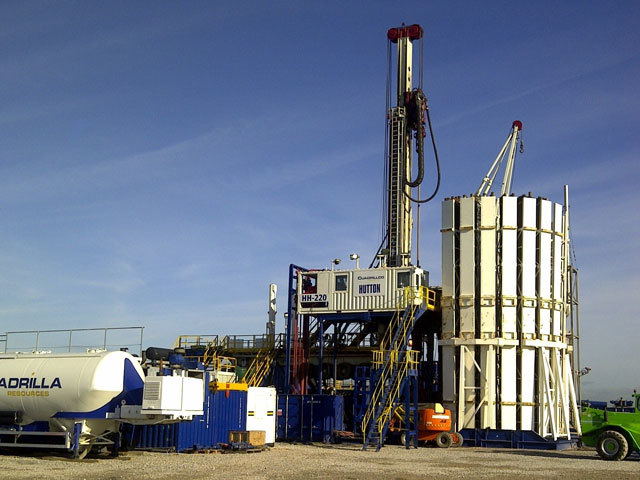
A shale boom in the UK could be worth up to £1billion for communities across the UK, the Government has claimed – as it prepares for a new licencing round next year.
Large scale shale gas development by the 2020s could produce up to 32,000 new full-time jobs, with significant community benefits being channeled back from the money raised.
The figures come on the back of a new report, produced by Amec for the government, which establishes the economic and environmental impact low and high levels of exploration would have for the country.
Ministers published a “regulatory roadmap” for shale gas setting out permits developers need before drilling.
Next year the Government will launch a new round of exploration licences, aimed at uncovering the full scale of shale oil and gas resources in the UK.
“There could be large amounts of shale gas available in the UK, but we won’t know for sure the scale of this prize until further exploration takes place,” said energy minister Michael Fallon.
“It is an exciting prospect, which could bring growth, jobs and energy security. But we must develop shale responsibly, both for local communities and for the environment, with robust regulation in place.”
The minister admitted the government could double the number of onshore licences issued during next year’s round, with up to 150 being awarded.
Under the proposals, a high level of activity assumes up to 8trillion cubic feet – around three times the current UK gas demand – would be produced.
The report, which is now being opened for public consultation until March next year, says local communities would benefit from an initial £100,000 payment per fracking site, with 1% of the revenue of each well being paid out afterwards.
However, the Amec report warns of potential impacts on the environment – including stretching water resources and pollution, plus an increase in traffic.
“This could have an adverse impact on traffic congestion, noise or air quality, depending on existing roads, traffic and air quality,” said the report.
Annual water use of shale gas exploration could be up to nine million cubic metres, around 18% of mains water currently supplied to energy, water and waste firms, said the report.
The concerns were echoed by environmental campaigners today, who expressed concern over the amount of water projects would need if high demand for fracking occurred.
Mary Church, head of campaigns at Friends of the Earth Scotland, said: “Communities across Scotland will be alarmed to discover that despite growing evidence about the harmful impacts of unconventional gas drilling and fracking, the UK Government is determined to go ahead with plans to squeeze as much as they can out of some of the most populated parts of the country.”
Shadow energy minister Tom Greatrex said the plans had been undermined by too much hype over the potential for shale gas.
“Rather than focussing on the need for robust regulation and comprehensive monitoring to address legitimate environmental concerns, the government seem to prefer to give licence to those who make simplistic comparisons to the USA that don’t stand up to scrutiny,” he said.
“Rather than relishing a false argument with opponents of fracking, the government should be taking a responsible approach – leading rather than posturing.”
But Fallon insisted traffic movement would be a “key consideration” in the planning process for approving shale permits, pointing to the impact the production was having on bills in the US.
“It has the potential to have an impact here. It can reduce our dependency on liquid natural gas.
“We face the prospect of having to import 70% of our gas by 2030 if we have not found any shale by then.”
Recommended for you
